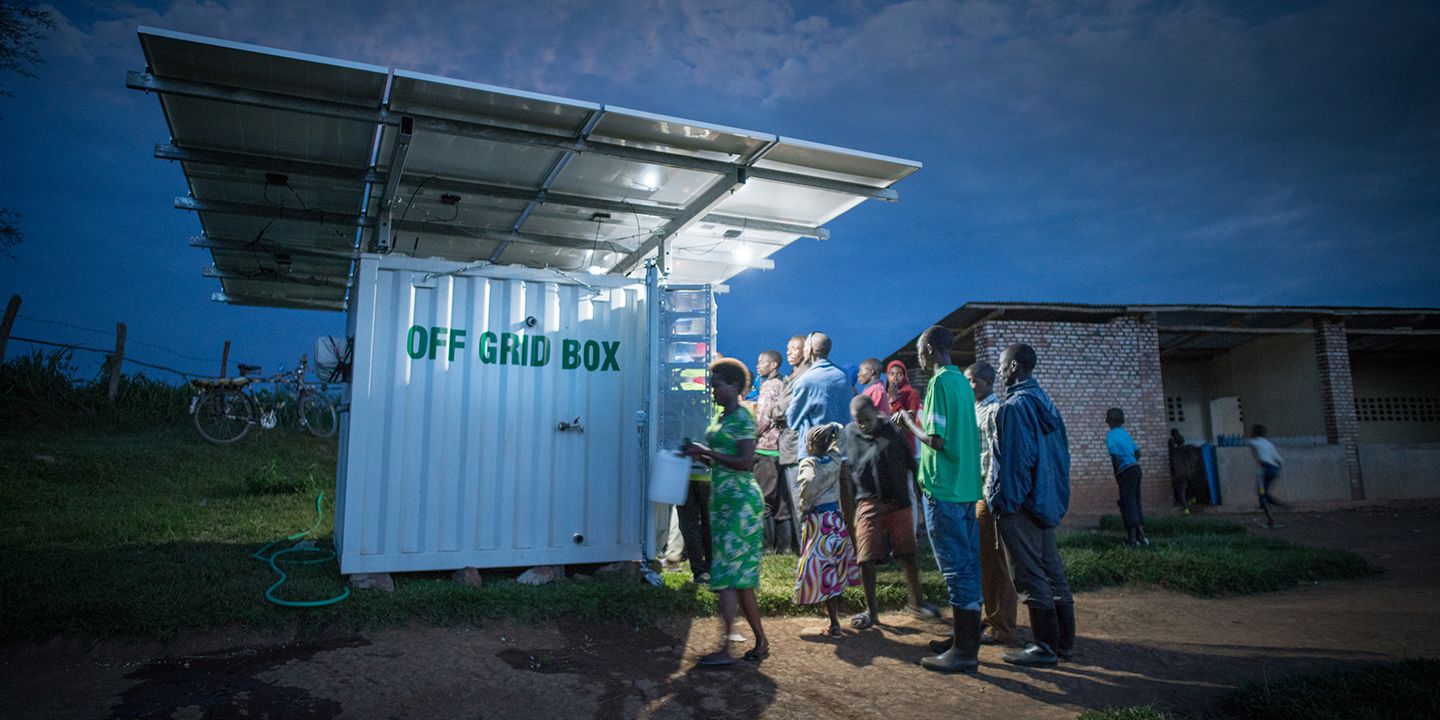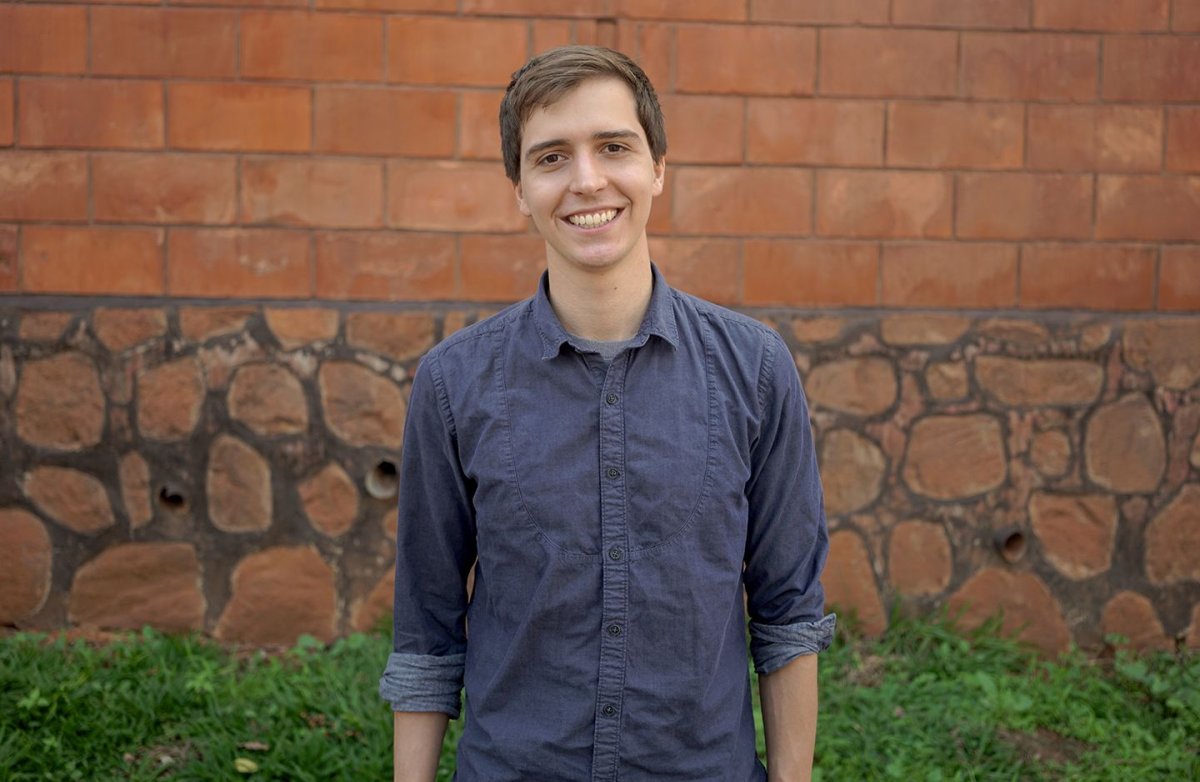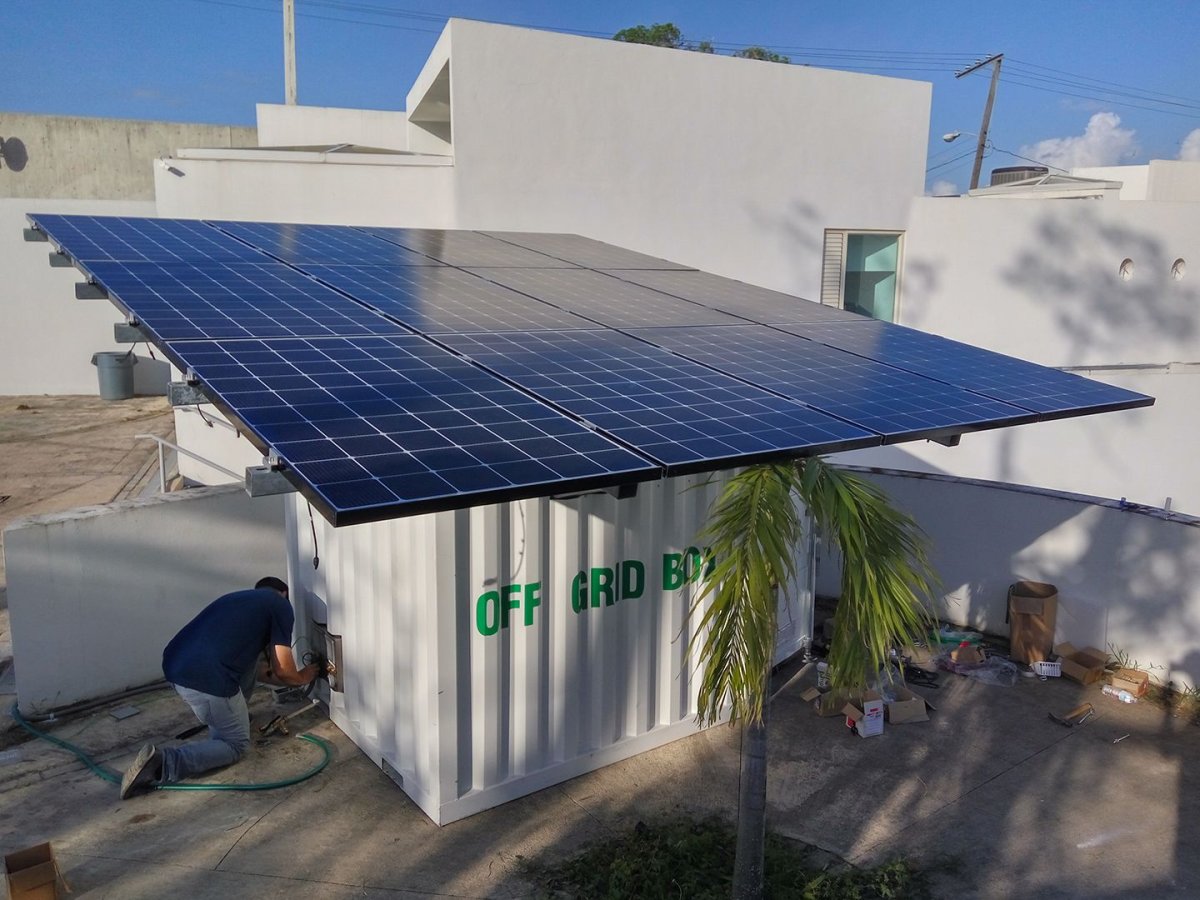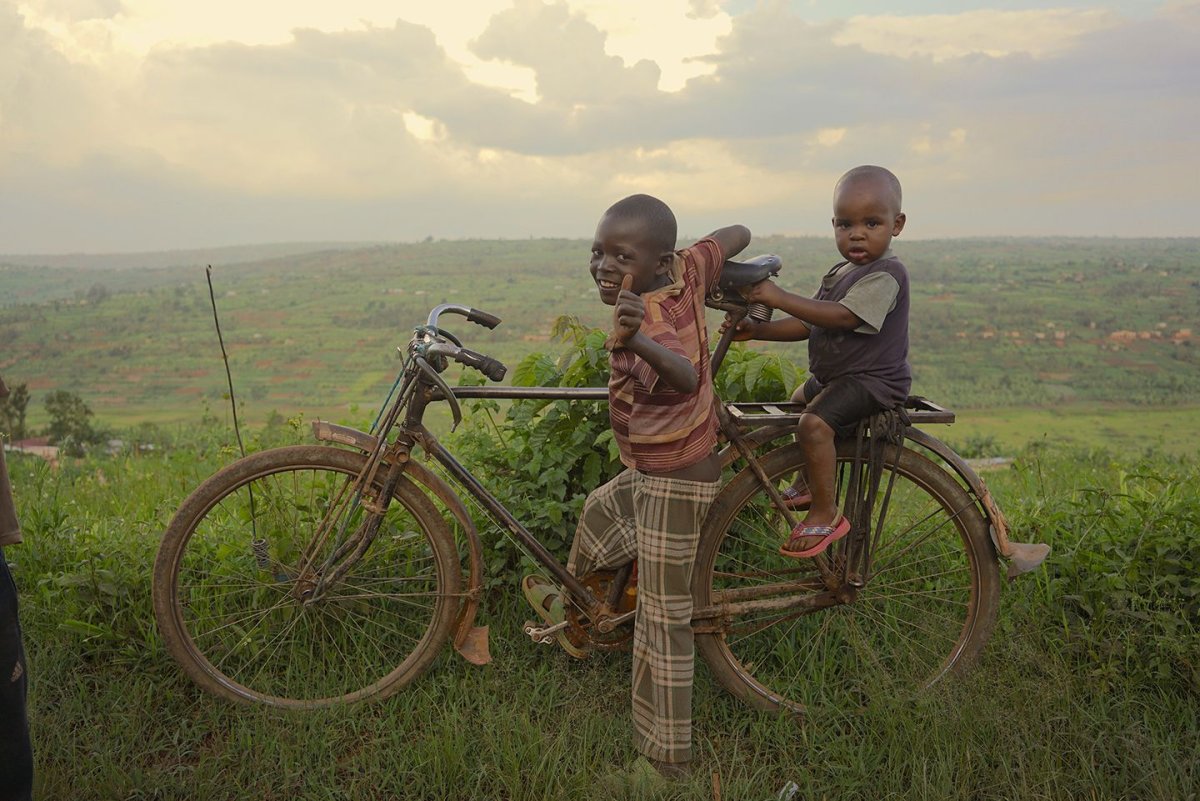
In anticipation of the 50th anniversary of NASA astronauts landing on the moon, Newsweek is spotlighting pioneers in science and technology, who highlight their very own moonshots and how they hope to change the world.
Twenty-five-year-old Troy Billett is the director of Off Grid Box, a startup dedicated to providing affordable energy and clean drinking water in rural communities while empowering entrepreneurs on the ground. A finalist for the Mohammed bin Rashid Initiative for Global Prosperity's Sustainable Energy challenge, Billett wants these 6-by-6-foot boxes to light up villages around the world, in more ways than one.

What is your moonshot?
My moonshot is to provide affordable renewable energy and safe water for the rest of the world. A billion people across the globe need access to both of these things; by pairing them, we can really make a difference.
How does Off Grid Box work to provide those things?
We have a small shipping container—6 feet by 6 feet—with solar panels on top and a water purification mechanism inside. Each box can serve up to 2,000 people in a rural village.

What is the big problem you want to solve?
We call our model the virtual grid. People who never before have had access to safe water and power in their homes now are able to take a five-minute walk to the middle of their village, where they can get a battery so they can charge a few lights and a couple of phones, as well as get 10 liters of safe drinking water—all for just 18 cents. For people living on less than $2 a day, this is something they can buy on a daily basis, a weekly basis or pretty much as they wish.
How do you decide where the boxes go?
We evaluate communities, and we work to understand their needs based on surveys. We don't just assume we know what they want. If we see that there's a need for clean water and electricity, then we will drop a box. Each one takes only three hours to set up. Of course, we already have permission from local leaders, but the commotion in a rural village when setting up a box gets people asking questions, wondering what's going on. This allows us to on-board the customers and explain how it works and its potential. They get a kit—a battery pack and a light—to use in their home. We also give them a clean jerrican, which they can fill up with water.
How do the communities themselves get involved?
The real barrier that we overcame was that we need somebody on the ground to run the system—we can't stay there forever. We wanted to empower the local communities too, so we worked with a local women's co-op to hire women entrepreneurs to manage the system on a daily basis and to maintain it in the long term. There are four women entrepreneurs dedicated to each box and one more experienced technician who oversees 10 boxes in case of more specialized issues.

What have you learned from other people who have tried to tackle these problems?
A lot of philanthropic efforts basically just patch the problem. Sending a thousand water bottles to a place in need is great, but it is temporary. It's not a long-term solution to the problem. I think what's necessary is something that is financially sustainable but also has an impact. We can't be the only solution, but I think it's the beginning of a lot more to come.
Where are the boxes now? How close are you to what you might define as success?
We started in one village with 50 families. Since then, we've raised enough funds to deploy 50 boxes in Rwanda. But in Rwanda itself, only 20 percent of the market would be 1,000 boxes. We have plenty of room to grow. And that's just in Rwanda. The vision is to serve the billion people in need across the globe. But we have to start one place at a time, one village at a time.
What do you see the world being like in 20 years if you are successful?
With more organizations and governments and even corporations collaborating to enable rural communities, we're going to see a brighter future. Investments in technologies that enable economic empowerment, that's what's going to make humanity successful.
Uncommon Knowledge
Newsweek is committed to challenging conventional wisdom and finding connections in the search for common ground.
Newsweek is committed to challenging conventional wisdom and finding connections in the search for common ground.
About the writer
Juliana Pignataro is the U.S. News Director.
Juliana previously led the breaking news/national news team at Newsweek. Juliana graduated from the ... Read more
To read how Newsweek uses AI as a newsroom tool, Click here.








